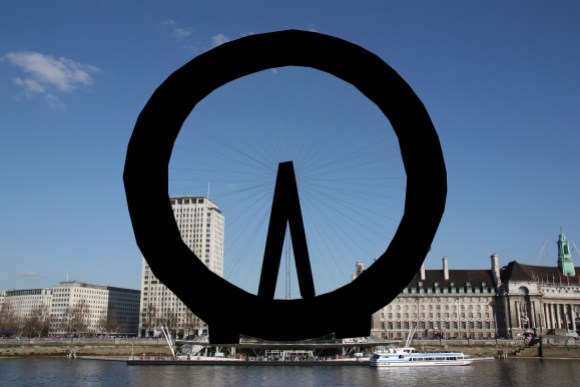
On 6 July 2017, Wikimedia Sweden (Sverige) lost a case on the freedom of panorama in the Swedish Patent and Market Court.
In 2016, clarifying what had been an ambiguous Swedish law about the right to photograph public artwork, the Supreme Court of Sweden ruled that works freely displayed in public could be photographed but, irrationally (in our view), could not be shared online. Following that ruling, the case in question, a dispute between Bildkonst Upphovsrätt i Sverige (BUS), a Swedish association that represents artists in copyright matters, and Offentlig Konst i Sverige, a Swedish website run by Wikimedia Sweden showing images and information about public monuments, was sent to the Swedish Patent and Market Court. That court has now issued a ruling against Wikimedia Sweden, a decision based on last year’s unfortunate Supreme Court decision.
The decision is a blow to the Wikimedia movement’s mission to make knowledge and art available to people around the world. Ironically, although photographs of publicly displayed (and often, publicly funded) art cannot be shared online without the artist’s permission, such photographs may be freely commercialized and distributed when in physical print.
“The outcome is a tragedy, because it renders public art less accessible and less public. Our intention has always been to give public art the kind of visibility it deserves. It is remarkable how, in a digital age, sharing photos in digital media is not OK if there is a work of public art visible in that photo,” says John Andersson, Executive Director of Wikimedia Sweden.
While the Wikimedia Foundation and Wikimedia Sweden will continue to advocate for the free expression of contributors to the Wikimedia projects and, more generally, for free and worldwide access to knowledge, Wikimedia Sweden has determined that pursuing a further appeal does not make sense at this point. Therefore, this marks the end of the case. The Wikimedia Foundation and Wikimedia Sweden will continue to pursue public education about freedom of panorama and Wikimedia Sweden is urging the Swedish legislature to improve the law to allow digital sharing that matches the expectations of the majority of the public.
This ruling may have broad consequences across many scenarios, affecting the taking of photographs in public spaces, above and beyond the immediate application to three pictures on a not-for-profit Wikimedia Sweden website. For example, based on this ruling, local residents or tourists who take selfies, or who seek to photograph the scenery to share with friends and family, may accidentally invoke copyright protections while sharing their photos on social media. That’s one of the major risks associated with what could become a dangerous precedent from Sweden’s Supreme Court and the Patent and Market Court. The works of art at issue are publicly visible and purposely not restricted from general public view; they are not inside of a gallery. So we find it all the more troubling that the mere act of sharing a photo depicting a public place can be deemed to be copyright infringement.
“Copyright is complex and largely incomprehensible,” Andersson says. “This ruling asserts that there is a difference in terms of user rights between digital and print media as photos of these works of art can for example be printed as postcards and used for commercial purposes. Digital non-profit projects like the websites Offentligkonst.se and Wikipedia, however, must pay for using the very same photos. In a society looking to fully enter a digital era, it is unreasonable to undermine the use of digital media in this way. The legislation clearly must be revised.”
Furthermore, when art is made available to the public, either by virtue of public funding, distribution through freely licensed photographs (as was the case with the photos in this lawsuit), or by intentional placement in full view of the public, then access to that art should not be subject to arbitrary restrictions. Restrictions such as this reduce public access to art, which in turn harms local culture, artists, and creativity across the globe.
Wikimedia Sweden is seeking donations to pay the cost of legal fees and fines it has incurred or that were imposed by the court (amounting to about $89,000 US) while it defended against this aggressive copyright scheme.
“We’re hoping to find support through a crowdfunding campaign to cover costs and to advocate for changes to relevant Swedish and international legislation,” Andersson says. “If you think the court ruling is unreasonable you’re welcome to make a donation. Supporters can either use Swedish payment app Swish at 1232692697 or visit https://wikimedia.se/en/donera to donate. Simply add “BUS” in the comment section and all funds will be put towards this cause.”
Jacob Rogers, Legal Counsel
Wikimedia Foundation
Special thanks to Richard Lenemark and his firm, Advokatfirman Delphi, for legal assistance on this case, along with Wikimedia legal fellow Alex Shahrestani for his assistance in preparing this blog.

Can you help us translate this article?
In order for this article to reach as many people as possible we would like your help. Can you translate this article to get the message out?
Start translation